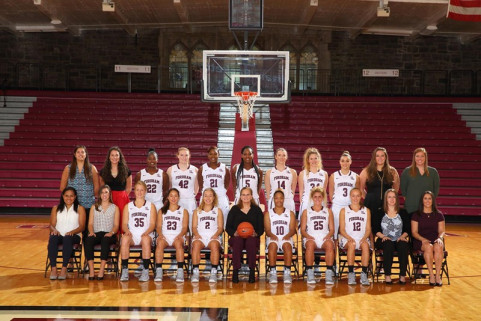Stephanie Gaitley, coach of women’s basketball at Fordham University, encourages her student athletes to earn their undergraduate degrees in just three years. Three of Gaitley’s athletes successfully followed her academic plan, but it is unclear whether the plan is practical for other full-time college students.
To ensure that they achieve their undergraduate degree within three years, students would take more credits per semester than the average student’s 12 credits and attend additional classes over the summer. However, the workload could reap benefits for certain students.
By graduating in three years rather than four, a student has the opportunity to spend a remaining year at a college or university in order to complete a master’s program.
For student athletes, this sort of academic planning could equate to a slam-dunk. Under one athletic scholarship that that covers the entire cost of a four years college or university, a student athlete could potentially get two free degrees: a bachelor’s and a master’s. The average cost of a master’s degree is $40,000, according to FinAid.org.
However, advisors and students debate whether full-time college students could also benefit from an earlier graduation date without the aid of a hefty scholarship.
Senior class Dean Rev. John T. Dzieglewicz, SJ, PhD. offers graduating students academic counseling. Dzieglewicz does not recommend that the average college student look to graduate in three years, as he does not see a significant financial benefit.
“I would not recommend that,” said Dzieglewicz. “With all of the money spent on the extra classes during the academic year and in the summers, you’re not necessarily saving as much as you would think.”
Summer classes at Fordham University cost $882 per credit. A student would pay approximately $14,112 to attend four summer classes for a total of 16 credits. Tuition and fees for a full semester at Fordham University cost $23,925 without financial aid, making a summer semester more cost efficient.
Students seeking to graduate early would also have to fulfill beyond the maximum amount of credits allowed per semester. Fordham charges $1,595 for every credit exceeding the 18 credit semester cap.
Dzieglewicz found the price difference to be marginal due to the workload that would be required by students who wish to graduate in three years. However, he agreed that not all students could dismiss the financial benefit.
“I understand that not everyone is living under the same financial circumstances,” said Dzieglewicz. “But if you can manage it, I think four years is a good amount of time for an undergraduate degree. You don’t want to rush your education. You also want to make sure you have time to integrate your learning experience.”
Joseph Mangione is a junior at Fordham’s Gabelli School of Business who will have completed his undergraduate accounting program in three years and plans to stay an additional year and achieve his master’s degree. He is not a student athlete nor does he possess a sizable scholarship that covers his entire tuition.
Mangione went against his advisor’s recommendations and followed an academic plan that he believes will prove to be fruitful for his career. “I will be a year ahead of my peers and fellow accounting majors, which helps the competition,” said Mangione.
Mangione has taken multiple summer classes and has paid the additional cost for exceeding the maximum amount of credits for the past two semesters. However, Mangione finds that the savings to be anything but marginal.
“The entirety of my savings will equate to about a semester at Fordham, which is roughly over $20,000,” said Mangione.
Although Mangione’s actions contradict Dzieglewicz’s advice, both agree on the workload graduating early requires.
“Don’t get me wrong, it is crazy hard work,” said Mangione. “But in the end, I will be ahead and will have saved money. So yes, it was worth it.”





